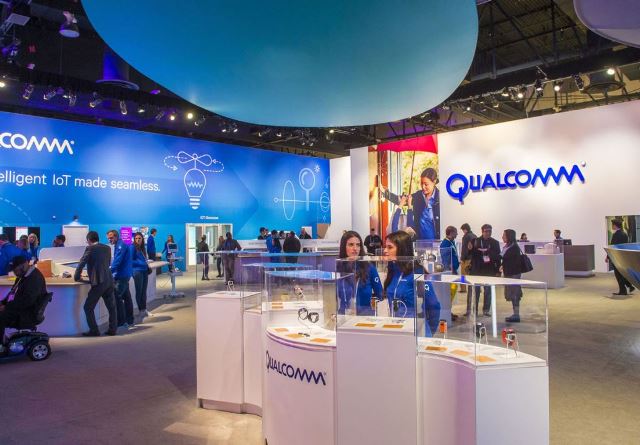 Semiconductor company Qualcomm Technologies will launch Qualcomm wireless edge services software, under a new business model, targeting enterprise and industrial IoT customers to connect wireless devices through cloud platforms.
Semiconductor company Qualcomm Technologies will launch Qualcomm wireless edge services software, under a new business model, targeting enterprise and industrial IoT customers to connect wireless devices through cloud platforms.
At present, Intel is dominating the IoT chipset market well ahead of Qualcomm. The new announcement on IoT market indicates that Qualcomm is serious about its future business, in addition to its positioning in 5G.
ALSO READ: Latest news from Mobile World Congress 2018
The semiconductor company said it will share APIs for the Qualcomm wireless edge services software on the MDM9206, MDM9628 and QCA4020 chipsets initially and select Snapdragon platforms later.
With Qualcomm Wireless Edge Services, Qualcomm is demonstrating an ability to lead in business model innovation, said ABI Research.
Small players and start-ups have already launched this type of business model, often referred to as Chipsets as a Service (CaaS), Silicon as a Sevice (Si-aaS), or Hardware as a Service (HaaS) to disrupt the market.
ABI Research anticipates that CaaS will be a highly disruptive business model in the IoT market and a serious challenger to the exiting low-margin one-time chipset sales model, pending high volume deployment.
Qualcomm has a significant role to play promoting CaaS as a highly disruptive business model, with the potential to take it to a large-scale deployment.
“It can leverage on the abilities of the business model to lower the barrier to technology adoption, deploy solutions tailored to the customer needs, and lower the cost related to devices lifecycle management,” Malik Saadi, vice president of Strategic Technologies at ABI Research, said.
However, the main challenges facing the company: redefining the value proposition of their chipsets around offering services rather than as the sale products, and the ability to adapt the CaaS business model to the conditions and technology requirements of the markets targeted, said ABI Research.
Qualcomm has selected Chinese partners including Baidu, Alibaba, and MoBike, and other established brands as prospective initial adopters of QWES. These players have the potential to deploy the solution at large scale and bulletproof the CaaS as a new disruptive business model.
Wei Ku, general manager of Alibaba Cloud IoT; Ray Guan, deputy general manager of Baidu Cloud; Jack Huang, chief executive officer of Gizwits; Benjamin Du, chief executive officer of MeiG Smart; Joe Xia, chief technology officer of Mobike; Patrick Qian, chief executive officer of Quectel; Wendy Wang, general manager of SIMCom Wireless; and Jun Zou, chief technology officer of Sunsea Group will be exploring the innovation from Qualcomm.
Qualcomm said wireless edge services is anticipated to facilitate the integration, processing, analysis, learning and exchange of information with wireless edge devices and unlock new use cases, services, ecosystems and business models, creating additional value across many industries.
“We continue to evolve and augment our leading Snapdragon portfolio to better serve our expanding base of customers across many industries and unlock the potential associated with trusted wireless access to billions of increasingly capable edge devices” said Serge Willenegger, senior vice president and general manager, 4G/5G and Industrial IOT, Qualcomm Wireless.
Qualcomm will offer wireless edge services on MDM9206 LTE modem for Industrial IoT products, MDM9628 LTE modem for automotive products and QCA4020 for home IoT products. The initial support of Qualcomm wireless edge services on these chipsets will be available in H2 2018.
LTE IoT SDK
Qualcomm Technologies also announced a new LTE IoT Software Development Kit (SDK) for the Qualcomm MDM9206 LTE IoT global multimode modem – targeting OEMs in the IoT segment.
The MDM9206 LTE IoT modem has pre-integrated support for cloud platforms, including Alibaba Cloud Link One, China Mobile OneNET, DTSTON DTCloud, Ericsson IoT Accelerator, Gizwits and Verizon ThingSpace.





